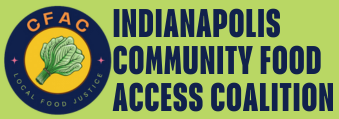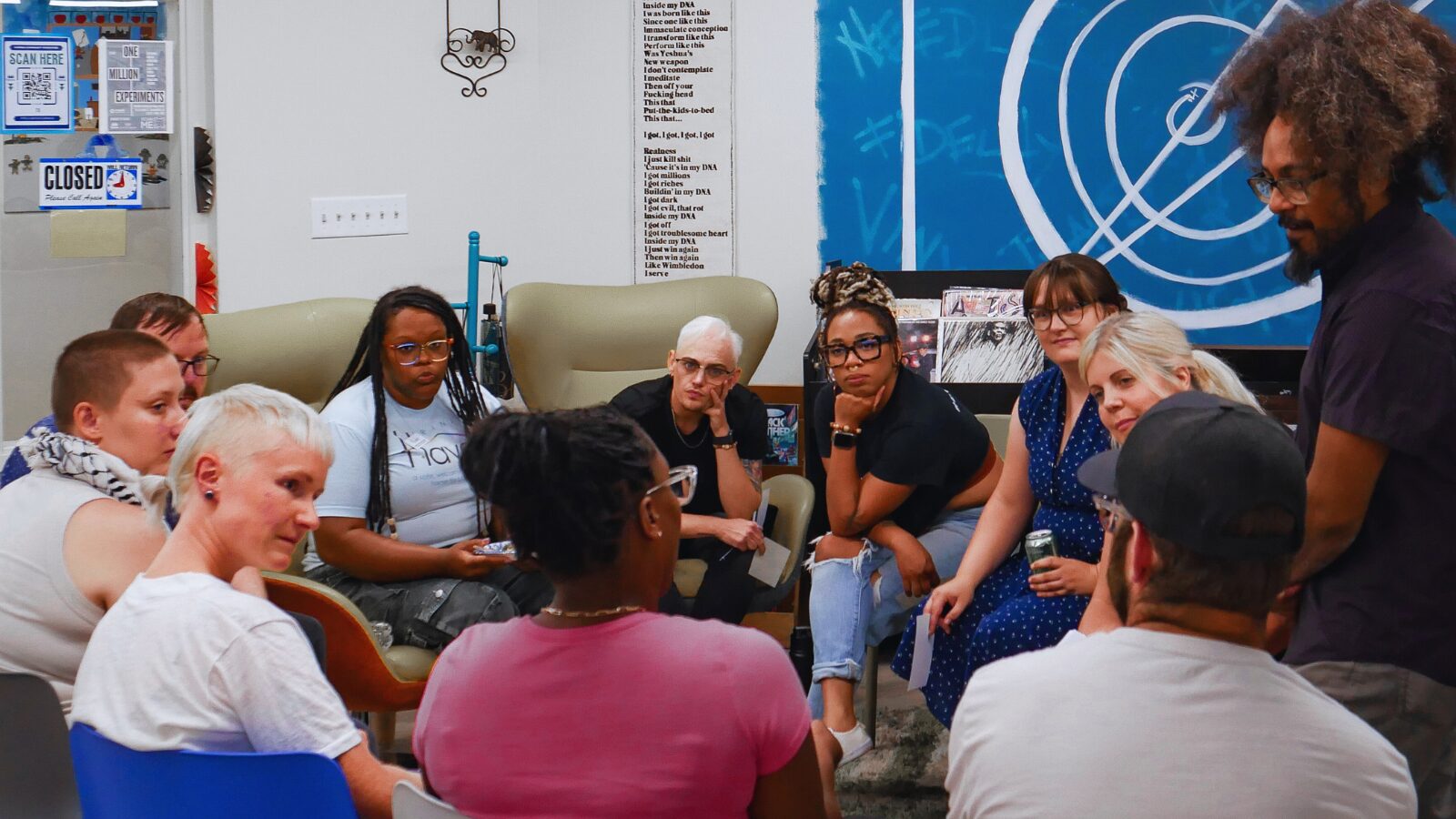The following article was first published on July 5, 2024 by the Indianapolis Liberator.
When Sierra Nuckols addressed the Community Food Access Coalition (CFAC), of which she is president, she impressed attendees. “My immediate thought was: commitment,” said James W., an attendee. Nuckols reaffirmed CFAC’s dedication to creating a food system which equally and plentifully meets the needs of all people in the city. The president of the coalition, which was formed four years after the city adopted Ordinance 337 calling for its creation, was born to a 15-year-old mother. She is intimately familiar with the obstacles countless people in Indianapolis encounter as they try to acquire healthy, affordable food.
“We hosted the event as a potluck to show what can be accomplished when the community comes together,” said coalition member and event-organizer Natalie Donahue. “A potluck is only successful if everyone brings something to share. And what made our event a success was the people who attended and the positivity they brought.”
“The Community Had to Take the Bull by the Horns”
The event, hosted by Flanner Farms and Ujaama Community Bookstore and forced inside the bookstore due to inclement weather, began with dinner. Coalition members volunteered to bring dishes while several of the more than 50 attendees also contributed to the vegetarian pitch-in-style meal. After a period of eating and conversing, Donahue introduced the executive team of the coalition to the attendees, and yielded the floor to Nuckols for a short speech.
In addition to speaking about her own background and the coalition’s devotion to the community, CFAC’s president described how and why the coalition came into being. Outlining the content of Ordinance 337, Nuckols charged the city with failing to properly implement the ordinance as it is defined. The ordinance created the Indianapolis Community Food Access Advisory Commission (IndyFAC); IndyFAC’s first mandate is to “identify community needs and goals related to healthy food access, food equity, and the food economy with priority given to low income and food desert areas.”
Further, the commission is to “provide oversight and guidance to the Indianapolis Community Food Access Coalition.“ The ordinance goes on to state that IndyFAC will provide budget recommendations to the Office of Public Health and Safety. These recommendations would heavily influence section 202-763(e) of the ordinance, wherein it is declared that, “The city-county council shall allocate funding annually, to be appropriated to the office of public health and safety, division of community nutrition and food policy, for the support of the food equity mission and activities of the coalition.”
Nuckols and other community members felt that it was impossible for the goal of the ordinance to be realized with no coalition in place. She asserted that the community “needed to take matters into [its] own hands” to further the cause of food justice in Indianapolis.
Referring to the lengthy period between the adoption of Ordinance 337 and the formation of the coalition, attendee Maria Goebel was “unsurprised.” “It seemed like the community had to take the bull by the horns to get this coalition going, because our council does not care to actually do it.” Despite her frustration with the City-County Council, Goebel actually sees this episode as a reason for optimism. “It is surprising that we as a community have stepped up together to get it done. I think that is the exciting part.”
Coalition to Identify Commission Appointees
Nuckols concluded by describing CFAC’s immediate future. While applauding the membership for quickly drafting its foundational documents—including requirements for membership, a mission and vision, bylaws, and more—in little more than a month, Nuckols went on to explain the impermanence of her position. She detailed their plan to initiate another election 90 days from the time the coalition formed, indicating this would allow them to solicit feedback from and bring in more of the community they seek to serve. Adding to this, Nuckols made an announcement: pursuant to the responsibilities of the coalition outlined in Ordinance 337, CFAC will soon be making its first set of recommendations to the mayor’s office for members to serve on IndyFAC. Per the ordinance, the commission shall include:
“Four (4) members of the community to be appointed by the mayor based on the recommendation of the coalition, one of whom will be selected by the commission to serve as the other co-chair.“
It is unclear how current members of the commission were chosen, given that the coalition only came into being in May of 2024.
CFAC Hungry for More Community Involvement
The evening closed with small-group discussions about food injustice in Indianapolis—as well as what organizations are currently doing in an attempt to address it—followed by individuals sharing their thoughts on the evening. Amber Toombs praised the coalition for bringing together and engaging with so many members of the community in this format. Goebel agreed with Toombs’ statement, and went further. “Coming in as an indigenous person and who has seen the way the city engages the community, [the potluck] felt a lot safer and surrounded me with people from all walks of life.”
“Bringing the community together to shape the coalition’s role in the food justice movement was the goal of the potluck,” Donahue said. “There are many people and organizations who are currently addressing food justice here in Indianapolis. How can the coalition support the work they’re doing? How will the coalition collaborate with these groups?”
Did CFAC further these goals through the potluck? Goebel thinks it is a good first step. She pointed out that the “amazing levels of organization, warmth, and joy are essential for getting more people involved.”
The Coalition’s next meeting, hosted by Ujaama Community Bookstore, is on July 9 at 6:00 pm. As with all official meetings, it is open to the public.
Photo: CFAC’s Interim-President, Harrison Jacobo leads a small-group discussion at the June 25 potluck. Credit: Indianapolis Liberation Center.

